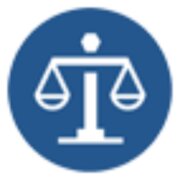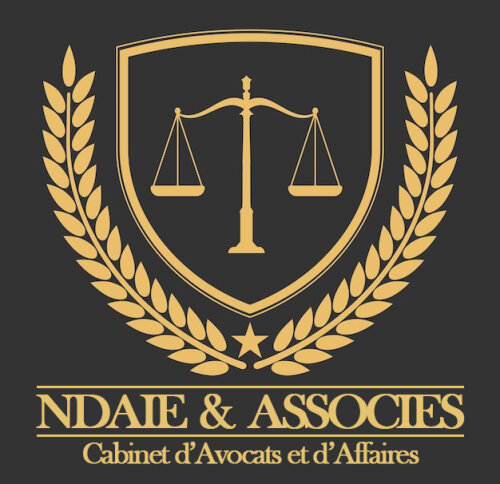Best New Business Formation Lawyers in DR Congo
Share your needs with us, get contacted by law firms.
Free. Takes 2 min.
Or refine your search by selecting a city:
List of the best lawyers in DR Congo
About New Business Formation Law in DR Congo
New business formation in the Democratic Republic of the Congo (DRC) is governed by a series of laws and regulations designed to facilitate the creation and growth of businesses within the country. The DRC has made significant strides to improve the ease of doing business by restructuring its legal framework, aiming to attract both local and international investors. Key legislation includes the OHADA (Organisation for the Harmonization of Business Law in Africa) Treaty, which the DRC is a part of, providing a harmonized legal environment for the business community in the region. Entrepreneurs must navigate aspects such as business registration, tax obligations, and compliance with sector-specific regulations.
Why You May Need a Lawyer
While starting a business in the DRC can be rewarding, it can also be complex due to legal and administrative hurdles. Engaging a lawyer can be beneficial for:
- Understanding the legal requirements and regulations specific to the DRC and your industry.
- Assisting in the drafting and review of legal documents, including articles of incorporation and business contracts.
- Navigating the compliance landscape to avoid costly legal disputes and penalties.
- Facilitating negotiations with local authorities and other stakeholders.
- Advising on intellectual property protection, labor laws, and tax compliance.
- Providing representation in disputes or legal proceedings if they arise.
Local Laws Overview
Several key aspects of local laws impact new business formations in the DRC:
- Business Registration: To legally operate, businesses must be registered with the Commercial Court (Tribunal de Commerce) and obtain a company registration number.
- OHADA Framework: As a member of OHADA, the DRC adheres to a uniform act that regulates commercial law activities across member countries.
- Taxation: Businesses are subject to various taxes, including corporate tax, VAT, and other levies which require appropriate structuring.
- Investment Code: Offers incentives for foreign and local investments, emphasizing the need for compliance.
- Labor Laws: Employers need to comply with labor regulations concerning employment contracts, working conditions, and employee rights.
Frequently Asked Questions
What are the steps to register a business in the DRC?
To register a business, you must prepare incorporation documents, submit them to the Commercial Court, obtain a unique identification number from the National Institute of Social Security (INSS), and register for taxes with the Directorate General of Taxes (DGI).
How long does business registration take?
The process typically takes from a few days to several weeks, depending on the complexity of the business and the efficiency of document preparation and submission.
What types of business structures are available in the DRC?
The common business structures include sole proprietorships, limited liability companies (SARL), public limited companies (SA), and branches of foreign companies.
Are there specific requirements for foreign investors?
Foreign investors must comply with the Investment Code, which may include obtaining an investment visa and registering with the National Agency for Investment Promotion (ANAPI).
Can I own 100% of my business as a foreigner?
Yes, foreign investors can own 100% of a business unless restricted by specific sectoral regulations.
What are the tax obligations for new businesses?
New businesses are subject to corporate income tax, VAT, and potentially other taxes like dividend distribution tax, depending on the business structure.
How can I protect my intellectual property in the DRC?
Patents, trademarks, and copyrights should be registered with the African Intellectual Property Organization (OAPI) or locally through the Ministry of Industry.
What support does the government offer for new businesses?
The government provides incentives such as tax breaks and simplified customs procedures through its investment code, particularly for priority sectors.
Do I need a local partner to start a business?
Local partnership is not always necessary unless specified by certain industry regulations or investment agreements.
What is the role of the Chamber of Commerce in business formation?
The Chamber of Commerce provides guidance and advisory services to new and existing businesses, promoting development and facilitating networking opportunities.
Additional Resources
For further assistance and resources on new business formation in the DRC, consider the following:
- Agence Nationale pour la Promotion des Investissements (ANAPI): Provides information on investment opportunities and requirements.
- Chamber of Commerce: Offers business support services and networking opportunities.
- Ministry of Industry: Manages industrial and commercial policy, including intellectual property registration.
- Local Legal Firms: Consultation with local law firms can provide personalized guidance and representation.
- OHADA Website: Background information on the legal framework applicable in member countries including DRC.
Next Steps
If you need legal assistance in forming a new business in the DRC, consider taking the following steps:
- Conduct Research: Gather information on business regulations and market conditions specific to your industry.
- Consult a Legal Expert: Contact a lawyer with experience in DRC business law and the OHADA legal framework.
- Prepare Documentation: Work with your lawyer to draft necessary documents for business registration and compliance.
- Register Your Business: Make use of the Commercial Court and relevant authorities for formal registration.
- Establish Local Contacts: Network with local businesses and governmental bodies for support and insights.
- Plan for Compliance: Set up processes for tax compliance, employee relations, and ongoing legal obligations.
Lawzana helps you find the best lawyers and law firms in DR Congo through a curated and pre-screened list of qualified legal professionals. Our platform offers rankings and detailed profiles of attorneys and law firms, allowing you to compare based on practice areas, including New Business Formation, experience, and client feedback.
Each profile includes a description of the firm's areas of practice, client reviews, team members and partners, year of establishment, spoken languages, office locations, contact information, social media presence, and any published articles or resources. Most firms on our platform speak English and are experienced in both local and international legal matters.
Get a quote from top-rated law firms in DR Congo — quickly, securely, and without unnecessary hassle.
Disclaimer:
The information provided on this page is for general informational purposes only and does not constitute legal advice. While we strive to ensure the accuracy and relevance of the content, legal information may change over time, and interpretations of the law can vary. You should always consult with a qualified legal professional for advice specific to your situation.
We disclaim all liability for actions taken or not taken based on the content of this page. If you believe any information is incorrect or outdated, please contact us, and we will review and update it where appropriate.
Browse new business formation law firms by city in DR Congo
Refine your search by selecting a city.

















